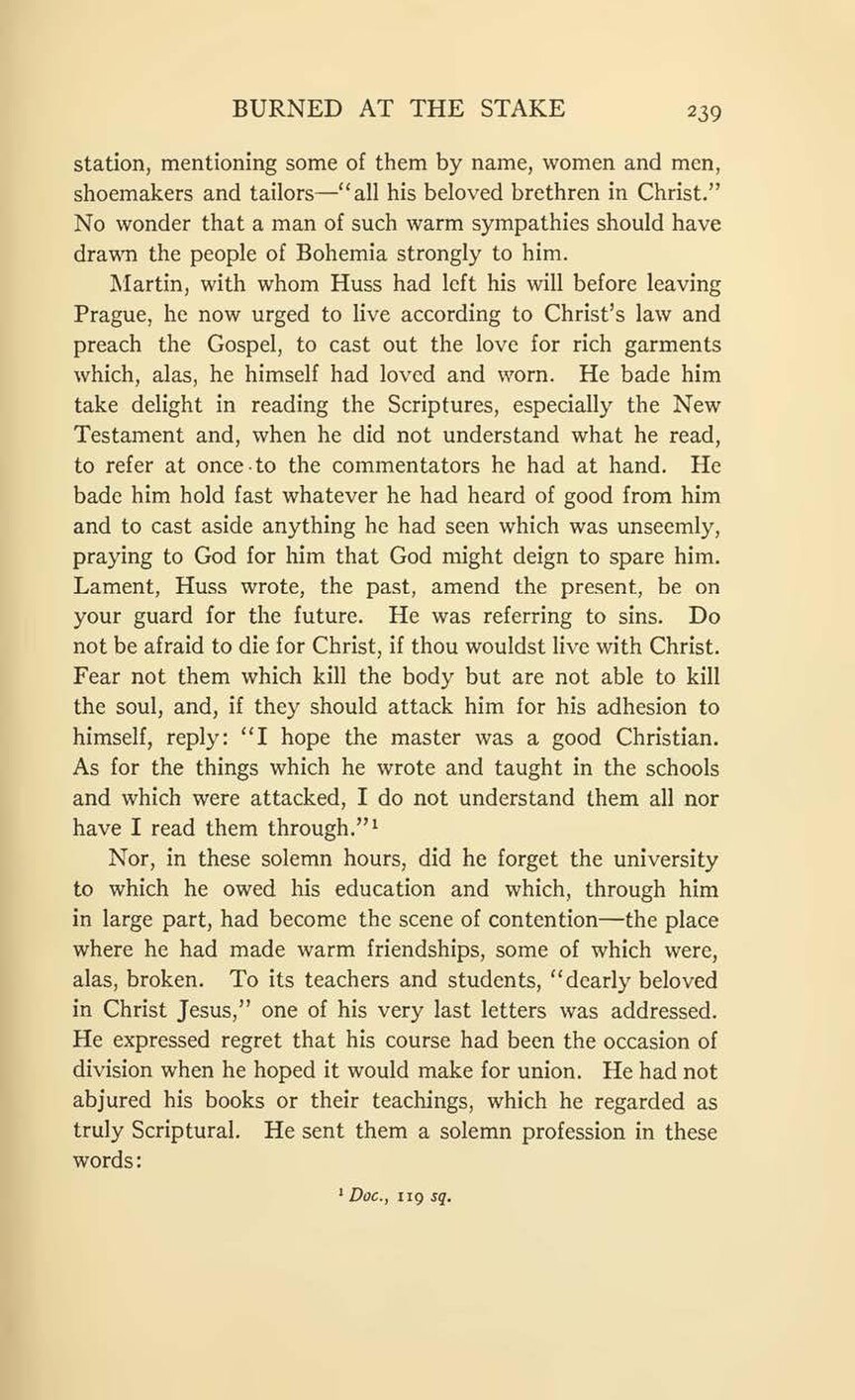station, mentioning some of them by name, women and men, shoemakers and tailors—“all his beloved brethren in Christ.” No wonder that a man of such warm sympathies should have drawn the people of Bohemia strongly to him.
Martin, with whom Huss had left his will before leaving Prague, he now urged to live according to Christ’s law and preach the Gospel, to cast out the love for rich garments which, alas, he himself had loved and worn. He bade him take delight in reading the Scriptures, especially the New Testament and, when he did not understand what he read, to refer at once to the commentators he had at hand. He bade him hold fast whatever he had heard of good from him and to cast aside anything he had seen which was unseemly, praying to God for him that God might deign to spare him. Lament, Huss wrote, the past, amend the present, be on your guard for the future. He was referring to sins. Do not be afraid to die for Christ, if thou wouldst live with Christ. Fear not them which kill the body but are not able to kill the soul, and, if they should attack him for his adhesion to himself, reply: “I hope the master was a good Christian. As for the things which he wrote and taught in the schools and which were attacked, I do not understand them all nor have I read them through.“[1]
Nor, in these solemn hours, did he forget the university to which he owed his education and which, through him in large part, had become the scene of contention the place where he had made warm friendships, some of which were, alas, broken. To its teachers and students, “dearly beloved in Christ Jesus,” one of his very last letters was addressed. He expressed regret that his course had been the occasion of division when he hoped it would make for union. He had not abjured his books or their teachings, which he regarded as truly Scriptural. He sent them a solemn profession in these words:
- ↑ Doc., 119 sq.
